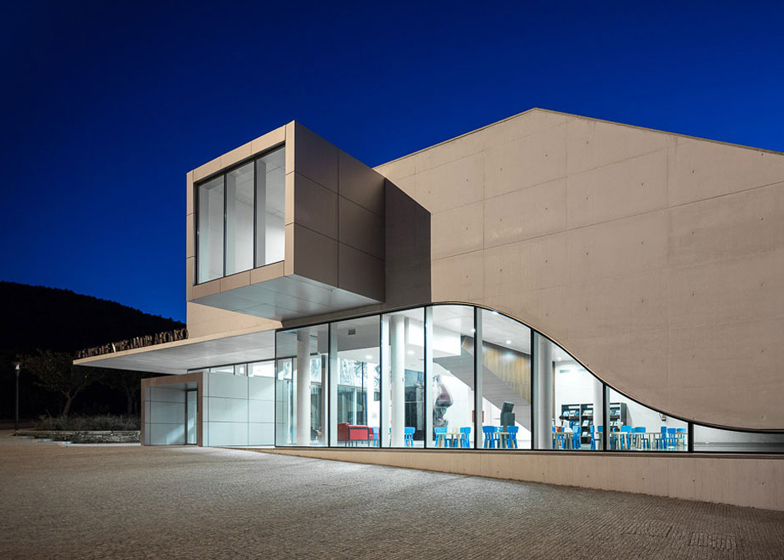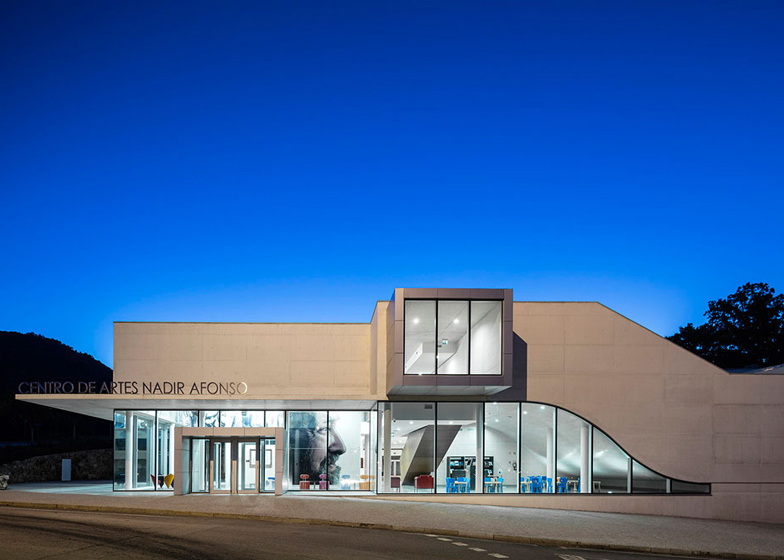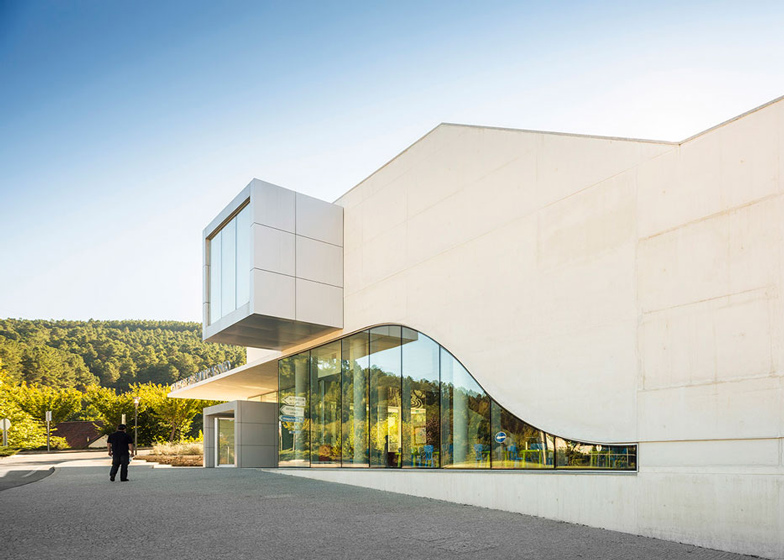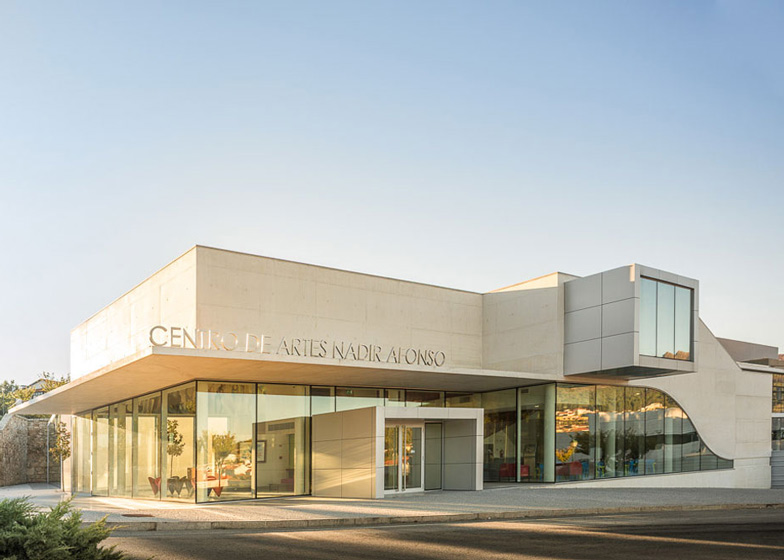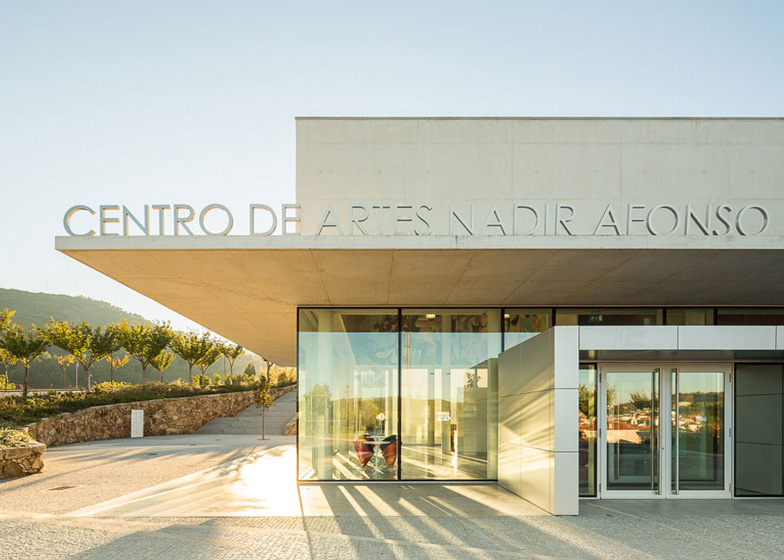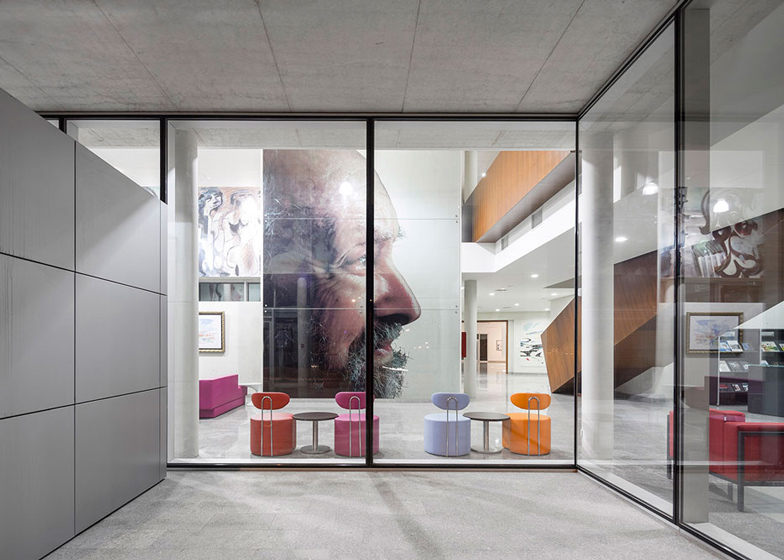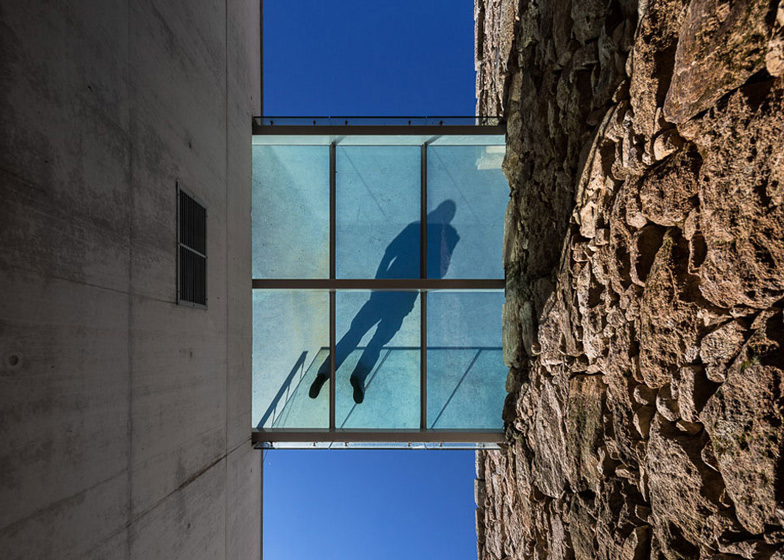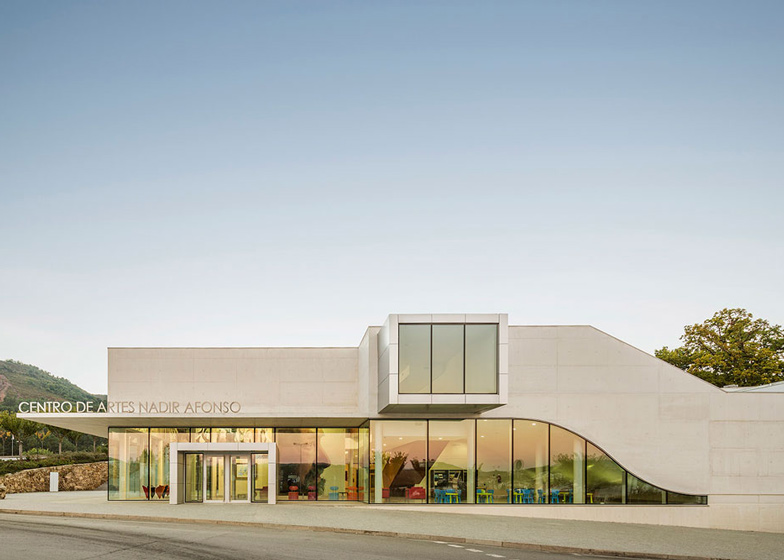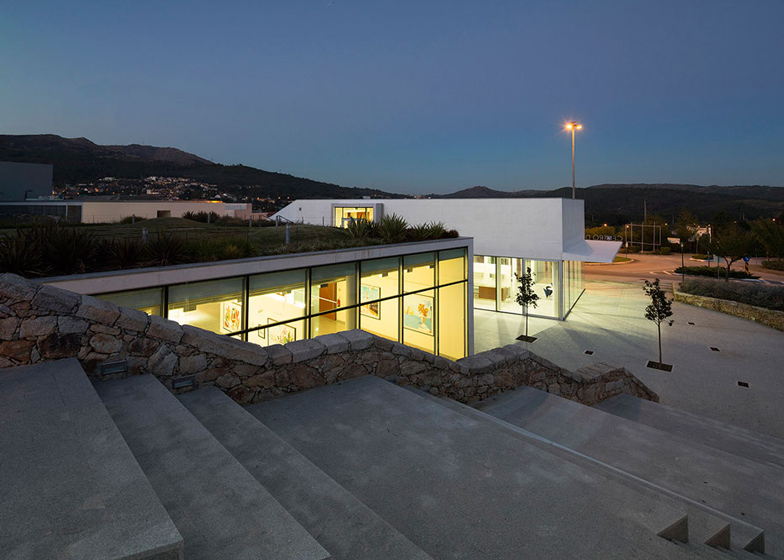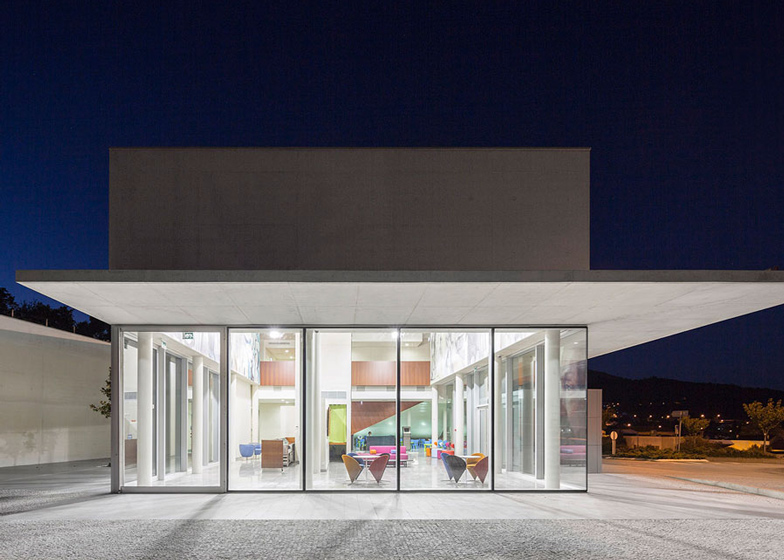New York architect Louise Braverman has completed an arts centre in the Portuguese town of Botica dedicated to the work of abstract artist Nadir Afonso, who grew up nearby (+ slideshow).
The Centro de Artes Nadir Afonso was designed by Louise Braverman to reflect its location on the boundary between Botica and the surrounding countryside. Situated next to a major new motorway intersection on the outskirts of the town, the building is separated into two parts, with cultural facilities facing the road and exhibition spaces at the rear.
Glazed walls enclose the corner of the ground floor facing the busy road, offering a welcoming glimpse of an interior that features a photomural of the artist.
A cantilevered roof juts out above the entrance and shelters this corner of the centre, while a rectangular box projecting from the upper section of the facade frames a view through the building.
The ground floor space is filled with colourful furniture that complements enlarged versions of the artist's sketches, arranged in a continuous band above the glass walls of the reception.
From the lobby, visitors can access a library, a cafeteria, a multi-purpose events room and ground floor exhibition halls at the rear of the building.
The ceiling above the library curves down to accommodate the banked seats of an auditorium above, which can be accessed via a staircase leading up to a balcony.
The portion of the centre containing the galleries is partly embedded in a steeply sloping hillside and is covered in a turfed roof featuring paving arranged to reflect the geometric patterns prevalent in Afonso's art.
A short flight of steps provides access to the upper storey of centre from the roof garden, while a long staircase along one side of the building enables those passing to catch a glimpse of the art.
This staircase is flanked by a retaining wall constructed using stone salvaged during the site excavation, which can be seen from inside the galleries. These large chunks of stone were laid without mortar using a technique called cyclopean masonry.
"Since the exhibition walls are shorter than the exterior walls, visitors can view the art against a background of the surface of the rustic stone of the recycled cyclopean retaining walls, creating a unique feeling of viewing art within a lavish grotto," said the architect.
The space between the exhibition halls and the retaining wall enables daylight to reach the interior, but minimises direct sunlight that could damage the artworks.
A gap between the two parts of the building at the base of the staircase can be used as an outdoor dining space for the cafeteria.
Photography is by Fernando Guerra.
Here's some more information from the architects:
Louise Braverman Architect designs Centro de Artes Nadir Afonso, An Art Museum That Links an Emerging Urban Center with its Pastoral Environs
Merging architecture and landscape, the recently completed Centro de Artes Nadir Afonso links an emerging urban centre with its pastoral environs. The 20,000-square-foot single artist museum fuses a light, lucid contemporaneity with the rich materiality and sustainability of Portuguese design to honour one of Portugal's most beloved native sons, the artist Nadir Afonso (1920-2013).
As well as paying homage to the artist, who formerly practiced architecture with Le Corbusier and Oscar Niemeyer, the Centro, along with the artist's foundation in nearby Chaves, will serve as an engine driving economic, cultural, and community development in the region. Sliced into a steep hillside, the new museum is divided into two distinct, but connected, parts: a light-filled cultural center looking out upon the intersection of a national highway and City Hall; and, nestled in the back, a vast, below-grade exhibition space topped by a green-roof park.
The Urban Face
In the double-height Entry Hall, a photomural of the artist and a continuous band of his sketches provide punches of bright colour visible from the street. From here, the exhibition hall, outdoor café, children's library and stairway to the auditorium beckon, as does the exterior auditorium that is designed to encourage informal civic engagement.
The Pastoral Side
Embedded in the hillside below a sustainably planted green roof, the exhibition hall is the heart of the museum. Since the exhibition walls are shorter than the exterior walls, visitors can view the art against a background of the surface of the rustic stone of the recycled cyclopean retaining walls, creating a unique feeling of viewing art within a lavish grotto. While encouraging the perception of an indoor/outdoor layering of space, the proximity of the walls to the interior both blocks degrading direct sunlight and allows indirect daylight to reduce the museum's carbon footprint. The green roof park, designed in the spirit of Nadir Alonso’s geometric patterns and the tradition of Roberto Burle Marx, also naturally modulates internal temperature while offering aesthetic delight to the community.
Architects: Louise Braverman, Architect
Location: Rua Gomes Monteiro, Boticas, Portugal
Architect in charge: Louise Braverman
Design team: Artur Afonso, John Gillham, Yugi Hsiao, Jing Liu, Snow Liu, Medha Singh
Area: 1858 sqm
Local architect: Paulo Pereira Almeida, Arq.
Consulting architect: Artur Afonso, Arq.
Landscape architect: Maria João Ferreira, Arq.
Structural & plumbing engineer: JP Engenharia, Lda.
Electrical and mechanical engineer: M &M Engenharia, Lda.
Fire safety engineer: Palhas Lourenço, Eng.

